(Za)kaj pa matematika?
(Opomba: Zaradi jamske akustike predsedniške palače, kjer je potekal pogovor z Cedricom Villanijem, je bila kakovost izjav neprimerna za radijske valove in posledično objavljamo prispevek s prepisom pogovora.)
Pred enim tednom se je v Ljubljani mudil francoski pop zvezdnik matematike Cedric Villani, dobitnik prestižne Fieldsove nagrade, ki v svetu matematike velja za ekvivalent Nobelove nagrade. Rahlo ekscentrični Francoz, ki na prvi pogled še najbolj spominja na čarovnika, je en najbolj znanih in medijsko reprezentiranih matematikov na svetu. Svojo prepoznavnost gradi predvsem na zunanji podobi in poljudnih predavanjih, ki so namenjena širši javnosti.
In prav odpiranje sveta matematike in širjenje njenih lepot 'neposvečenemu' občestvu sta osrednji cilj Villanijevega trenutnega delovanja. Njegov najobsežnejši projekt v teku je izgradnja matematičnega muzeja v Parizu. Projekt se je začel razvijati pred petimi leti, končal pa naj bi se leta 2020. Več o projektu in njegovih posebnostih pove Villani.
»There are already museums of sciences here and there in the world and there are a few museums of mathematics around the world. There is one in New York, there are a few in Germany, particularly in Giessen and in Dresden there is a whole section of museums of sciences in London etcetera. But maybe the most particular thing of our one will be that it will be all integrated. You know our institute owns a historical building for 90 years in which our research activities take place. The building we are taking over is the one just next door, a few meters away. It is also a house of science and part of that second building will be devoted to the museum. And so in the same couple of buildings there will be research but also working with kids and also working with technology and industry. So we are developing activities with those people from the industry, setting exhibitions together, working on how to explain links between mathematics and technology. For instance we just made an exhibition about information theory and work of Claude E. Shannon another important mathematician and engineer of 20th century. We did this partnership with tech people. So we want this place to concentrate at the same time to research technology and pedagogy.«
Vprašanje, ki se poraja na tem mestu, je, zakaj je matematiko sploh treba popularizirati. Torej kako in zakaj pride do tega, da se povprečni posameznik oddalji od matematike, in zakaj mu jo je sploh treba ponovno približati.
Najprej se posvetimo odporu in strahu, nekoliko manj pa spoštovanju, ki ga je deležna matematika od učencev, dijakov, študentov in nasploh vseh, ki so se z njo srečali v šolskih klopeh. Matematika je verjetno najbolj univerzalno osovražen šolski predmet, sovraštvo do nje pa izvira predvsem iz nerazumevanja in strahu. Prisluhnimo Villaniju, kaj so po njegovem razlogi za taka občutja.
»The first reason is let’s face it, it is difficult. I did more than my share of exercises in the old days. Practicing and practicing until it becomes fluent. Math is one of these fields that are tricky. That you don’t learn in the books, I mean there are books that are well written but when you are solving an exercise you don’t find that in a book. And you usually don’t learn it at home either. I learned it through exercises, classes, through tolk with teachers and so on. Geography you can learn by traveling, discussing with people, watching reports and so on. But in mathematics you can acquire mathematical culture, but when it comes to practice, you have to really do it seriously in school. In mathematics there are some very big misunderstandings. Many people think mathematics is about computing. This is wrong. You can get a Fields medal without knowing the multiplication tables. Really. We don’t care about multiplication we care about the reasoning, deep concepts. And this requires lots of training. Then there is another misunderstanding, that if you understand the course you will be able to do it. That is wrong. You understand the course and then you arrive at assignments and you realize you don’t understand it actually. You need to go back and practice and there are some things you will never understand until you’ve solved the assignments. And that is not typical. And there is another misunderstanding - that the goal of mathematics is to do formulas and that course can be summarized in few key points. And if you know these key points you can continue. That is wrong. It is not the key points which are important but it is the practice and good reasoning. When you solve a lot of things you will be able to understand the formulas. It is more important to know where the formulas come from then to know them by heart. So there are all this misunderstandings. There is a famous text written by a guy named Paul Lockhart who was mathematician but also writer and it is called a A Mathematician's Lament. It says: »Imagine a world in which music classes are all devoted to learning solfeggio and learning about to write notes properly and so on. And in which you never hear the music. Imagine a world in which art class is devoted to understanding the colors and to know about the paintbrush and all about different paintbrush techniques but you never do a drawing.« This is like a prison of mathematical teaching in which you learn all the technics but you never put them in application in real things like solving problems, appreciating beautiful reasoning or original proof.«
Kot je izpostavil Villani, se problem skriva prav v napačnem dojemanju matematike. Kar je v šoli predstavljeno kot matematika, so v resnici samo orodja, s pomočjo katerih so matematiki zgradili koncepte, zdaj pa se jim, če se le da, izognejo. Pripombe učencev, da je to, kar se učijo, neuporabno, so do neke mere tako tudi na mestu, vendar pa je učenje oziroma razumevanje matematike na 'srednješolskem' nivoju pomembno predvsem za razvoj abstraktnega mišljenja. Z reševanjem matematičnih nalog se možgani naučijo analitičnega reševanja problemov, ki ga podzavestno uporabljamo v vsakdanjih situacijah.
Smisel 'šolske' matematike tako ni dejansko računanje, reševanje enačb ali integriranje, temveč neki širši koncept sposobnosti abstrahiranja in razvijanje logičnega razmišljanja. Prepogosto učitelji tega ne znajo razložiti učencem oziroma se sploh nikoli ne potrudijo in prav zaradi tega učenci ne vidijo smisla v učenju matematike. Dokler pa človek ne vidi smisla v učenju, je ta proces veliko težji, dolgočasnejši in napornejši, kar se v primeru učenja matematike spremeni v mržnjo do cele veje znanosti.
Matematika je po svoji naravi veliko bližje filozofiji kot drugim naravoslovnim znanostim, ki temeljijo na eksperimentih in poskušajo opisati naravo in svet, v katerem živimo. Matematika je bolj ali manj sama sebi namen, lahko bi rekli, da je mathpourmathistična, od časa do časa pa postane orodje predvsem v fizikalnih raziskavah in na drugih področjih. V matematiki se privzame nekaj aksiomov, ki se nam bolj ali manj zdijo naravni, in s pomočjo teh aksiomov ter logičnega sklepanja se dokazuje resničnost matematičnih trditev. Poleg aksiomov in trditev se v matematiki pojavljajo tudi definicije, to so precizni opisi različnih matematičnih objektov, ki nastopajo v trditvah. V matematiki je tako veliko bolj od memoriziranja različnih formul pomemben postopek tega, kako smo do njih prišli, torej kako smo jih dokazali. Kot je povedal Villani, matematiki sami veliko bolj cenijo domišljijo kot rigoroznost in formalno pravilnost, ki se zahtevata v šoli.
»Certainly schools should do more to fix misconceptions about mathematics but that is not such an easy game. First mathematics is one field in which technique and imagination are really strongly connected. We mathematicians value imagination more than any other feature. When we have to evaluate a mathematician – if we want to hire this guy or this girl – question is what original ideas did he or she have. That is the first thing to ask. And if there is someone very rigorous and with no imagination he will always come after someone who is not rigorous and has great, imaginative ideas. On the other hand, before you arrive at the point where you can use your imagination you must have some technique because it is impossible to do nice improvisation on the piano without mastering technique first. So the teacher will think it is natural to first do the technique... Computing you can do at early age but proving comes later. For most of the people you cannot do it before the age of 12. Some people can do it earlier and some people will never be able to do it. But you can't do it reasonably before a certain age. And so it is natural to think: first should kids establish the technics and later they will work more on the imagination. That is not quite right. Because people can get disgusted even before they get to do the interesting stuff if you do it this way. So we have to work more with the teachers because they can make this happen. Now, which is the correct way to teach is a very difficult question. And it is pretty unsure to ask famous researchers to advise on teaching methods. It can be a disaster. Good teaching methods have to be experienced in the classroom. And best things start from thinking of a teacher and discussion between teachers. And often very understated way to derive new methods. Most of all we need teachers which are passionate who truly appreciate mathematics. In France we have this problems because our teachers of little kids usually come from literature studies. Most of them were themselves scarred by math in school. Now it is their job to teach math to little kids. Doesn’t start so good. Also there is this concept that the teacher will get instructions from the official program. Very bad idea. It is not the program behind the creativity of the course. First of all it is the enthusiasm of the teacher... «
Villani nadaljuje, da je eden od načinov, kako učence seznaniti s 'pravo' matematiko, učenje programiranja.
»Coding is a skill which is very close to the skill of learning mathematical proof. But somehow it can be introduced to kids at earlier age. What is wonderful about it is that you can correct yourself. When you make a program and you get in this concept that you first make a guess and then correct it. This is so difficult to have in math class because kids often think if I don’t have it right from the start I better not say anything. We are publicly advocating introduction programing to children at very early age including explanation what algorithms are before they even get to a computer. «
Da bi se matematika znebila stigme neuporabnosti in dolgočasnosti, bi tako morali korenito spremeniti metode njenega poučevanja. Prilagoditi bi bilo treba vsebino in osmisliti učenje teh vsebin. Villani je kot eno od možnih rešitev predlagal uvajanje programiranja v osnovne šole, saj se skozi razumevanje algoritmov in popravljanje lastnih napak učimo logičnega mišljenja, ki je temelj matematike. Prav tako bi bilo pomembno poudarjati nesmiselnost 'piflanja' raznih formul in raje spodbujati razumevanje izpeljevanja teh formul. Matematika postane veliko težja in bolj nesmiselna, če je naučena na pamet, saj izgubi vezne člene, ki jo delajo smiselno in lepo. Spremeniti pa bi bilo treba tudi splošen pogled na bistvo učenja, ki sledi mantri: naučite me nekaj 'uporabnega'. Danes se zdi učencem bolj uporabno znati rešiti en konkreten problem, s katerim se srečujejo, kot se naučiti razmišljati in tako biti sposobni reševanja mnogo različnih problemov.
Morda bodo matematični muzeji zbudili zanimanje za matematiko in sprožili spremembe v precej zastarelem in arhaičnem načinu poučevanja. Precej verjetneje pa je, da bo do sprememb prišlo zaradi razvoja tehnologije, vse večjega pomena računalniške pismenosti ter nuje po programerskih veščinah, ki zahtevajo predvsem analitično in logično razmišljanje.
V študiju neuporabnosti vztraja Ana.





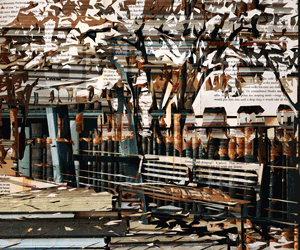
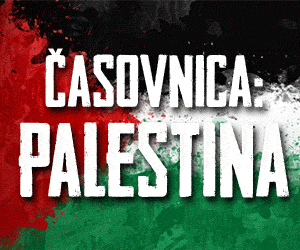
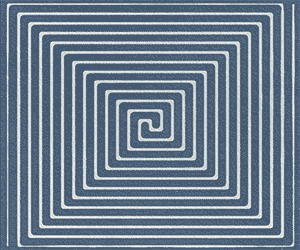





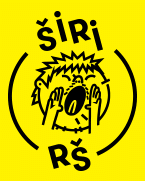
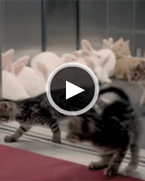







Prikaži Komentarje
Komentiraj